Look at your gear right now. How much of it did you need and how much of it did you want? Knowing the difference between the two can save you thousands and make you a more sophisticated photographer who focuses on art.
We are often biased to believe that a newer camera has exactly what we need to take better photos. And it’s easy to be of that opinion. There hasn’t been a week without a gear release for the past decade. With the constant bombardment of news, we want that new piece of gear. But sometimes, we may need a better camera to get a certain result. Not every purchase we make is out of desire; some are out of necessity. Before we can delve into deciding the next purchase, let’s take a step back and look at what we already have.
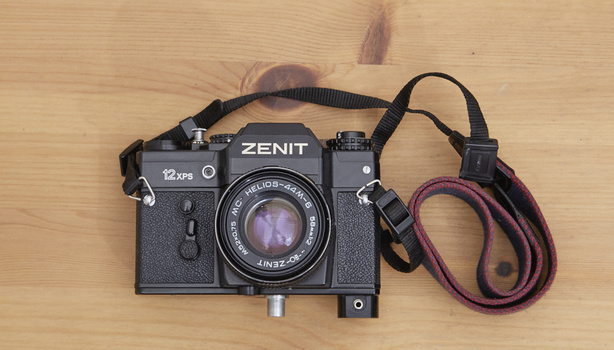
What Do You Have Now?
Look at your camera kit, no matter the level. Take the things you use on every shoot and compare them with the stuff you used once. Ideally, you would put the two in separate piles. You are trying to separate the stuff you used once, from the equipment that is absolutely necessary to create an image. If you’re a paid professional, add backups to the mix. I can’t say what’s a good ratio between the two piles, but if most of the things are in the “wrong” pile, then you might consider changing your buying habits. Here’s an example from my world: the Canon 16-35mm f/2.8 lens.
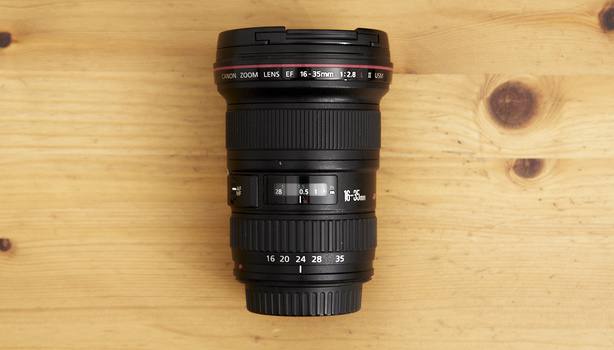
I Need That to Complete the Kit
When I bought the Canon 16-35mm f/2.8 lens, it was right after a series of big jobs, and I could finally afford a used copy. At that time, I was very interested in completing the golden kit of three f/2.8 zooms. So, I knew I had to get the lens. And besides, I do recall needing a wider focal length when I shot interiors and very large groups. In hindsight, the interior and large group work ended as soon as the pandemic started. That money would have been a lot more useful in the bank. Practically speaking, my purchase of the Canon 16-35mm f/2.8 was out of wanting to complete a made-up kit. When buying it, I didn’t consider it an investment, but as a simple item that would cover those wide angles in case I needed them. Now that I shoot fashion, the only time the Canon 16-35mm f/2.8 lens comes out is for BTS work or a very specific look. The time wasted on reading reviews comparing the three versions is never coming back too. By most standards, that’s a very bad business investment. I no longer consider any equipment as part of a kit. If anyone tells you that a portrait lens is a Canon 85mm f/1.2 while a beauty lens is a Canon 100mm f/2.8 Macro and a fashion lens is a Canon 35mm f/1.4, that’s complete nonsense. I shot 95% of my work on a Canon 24-70mm f/2.8, and there has never been a situation in which I needed something else in that focal length range. What’s more, most of my images are in the 45-55 mm range, meaning, I could technically have a Canon 50mm f/1.2 to do all my work, but I won’t because I don’t need a faster aperture.
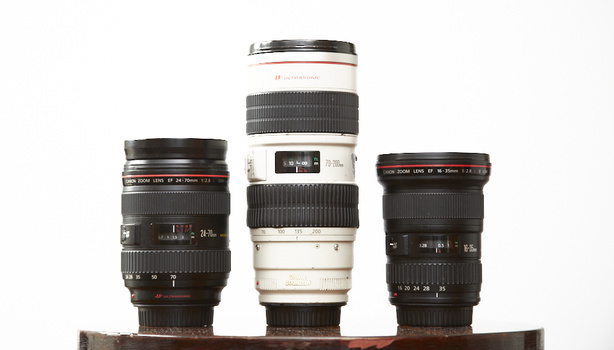
When Do I Really Need Gear?
Knowing when you need gear and when to justify the purchase is what we all came here to know. There’s a series of flags that can point in the direction of needing an upgrade.
When Your Current Equipment Can’t Produce the Required Image
When it comes to needing a camera, I doubt you do. There hasn’t been a bad camera since 2009, and what you have is probably more than enough to do paid work. Having shot events in low light on a Canon 5D Mark II with one functioning focus point, I can guarantee you that. If you’re a hobbyist doing landscape work, a Canon 5D Original will set you off some $300 and will provide excellent results.
Speaking of lenses, a Canon 24-70mm f/2.8 is plenty to do most work. If you’re using a kit lens to do wildlife work, you may want to rent or buy a more dedicated lens. If you’re a hobbyist starting out, I suggest really getting to know your kit lens before upgrading. And despite what YouTube told you, no, you probably won’t need a Canon 50mm f/1.8 right away.
Lighting-wise, if you own a flash with decent recycle speed and flash duration, you’re good to go. Most of the Godox lights are great. If you own old big brand lights, you’re also good to go. When it comes to modifiers, though, you really need to do the research before you invest in something. I suggest more expensive modifiers, as they last decades, so much so, mine were bought for next-to-nothing from studios that went bust.
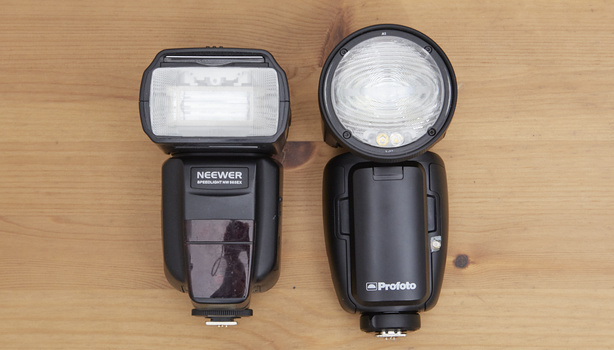
When Renting Is More Expensive Than Owning
There isn’t a large city I can think of that doesn’t hire out big-brand equipment. Profoto prides itself on being available worldwide, I’m sure the deal is the same with other camera brands. This often results in photographers taking out something on a frequent basis. For example, I love the Profoto Fresnel, and it’s readily available in the rental house. But, it costs $2,690 to buy, so I would have to rent it a good 150 times in order for it to become more expensive. I don’t shoot that much in a year, so the Fresnel isn’t something I will buy. Compared with a White Umbrella that comes out on every shoot, it’s easy to see what I need.
When Do I Really Want Gear?
In general, it’s a bad idea to invest in your business because you feel like it. If you’re a hobbyist, the issue is not as pressing, but there are better ways to spend money. Here are some signs of you wanting new gear.
When Hoping to Be a Better Photographer Because of Owning It
Can you tell me exactly the feature you need in a new camera and how you need it? If you can’t, then probably, you are hoping a newer camera will just make better photos by itself. The topic “it’s the photographer, not the camera” has been covered to death everywhere. Perhaps it is the excitement you want out of a new camera. I can relate to that, but I can also guarantee that you(and I) can’t tell a difference between a camera from 2009 and a camera from 2016. A recent article compares the differences between two lenses at either end of the price scale. You may want a new camera, but make sure you are taking advantage of all the relevant features of your current one. Use it to death. Upgrade only when absolutely necessary. You will save time, money, and be a better photographer.
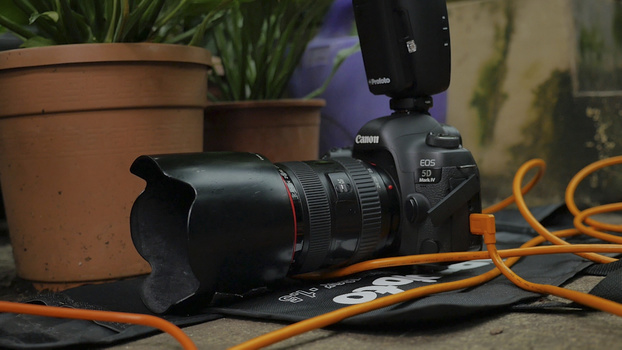
When Needing to Cover All Bases
I hear this a lot from people buying lenses. “Oh, but what if I have to shoot a job with an extreme telephoto?” “What if the moment needs that specific lens? I must have all bases covered.” People buying lights will say they need three different battery-powered strobes because each has a different use. That one is for portability, the other is for the flash duration, and the third one is for the battery capacity. In reality, having all bases covered doesn’t get you beyond the hypothetical “what if” cases. If you need more, rental houses have fleets of lights you can take out.
When it comes to lenses, having all bases covered sounds a bit silly to me. I can’t think of a photographer who would regularly shoot from 11mm to 400mm. I can, however, think of photographers who shoot all of their portfolio work on a single lens. Having one decent zoom lens is more than plenty for most work. Canon’s 24-105mm is a brilliant example of one.
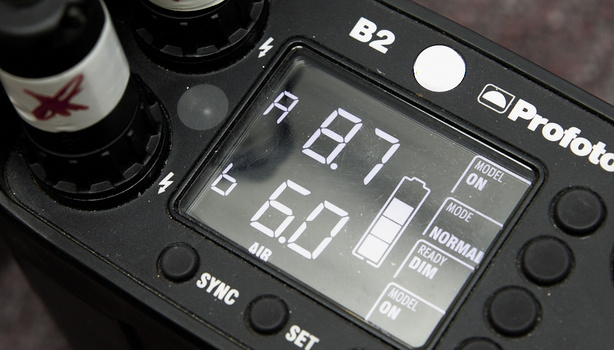
When Someone Else Has It
There’s a good reason influencers are given free stuff. It goes without saying that a product endorsement from a public figure will drive sales above and beyond. Remember Juicy Couture? It became an overnight sensation because celebrities were sent free JC tracksuits — they pioneered the influencer marketing strategy. The same goes with cameras and pretty much anything else. You may want the camera a famous photographer uses, but you most likely don’t need it. The same goes for photographers who race their competitors in camera versions. You should only race your competition in the amount of profit you can make and the amount of fun you’re having while doing it.
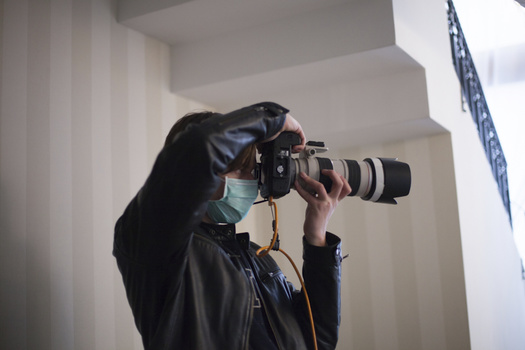
Closing Thoughts
Reflecting on your buying habits, especially when so much money is at stake can do wonders to how much you can invest in your business or perhaps the next dream trip. Buying because of want can also lead to uneducated purchases, which result in disappointment (TV infomercials are a perfect example of that). Hopefully, this article helped you to become a more educated purchaser and a much more careful spender. What are some purchases that you made and regretted? What are some items that you needed and now use all the time? Let me know in the comments; I always read them.